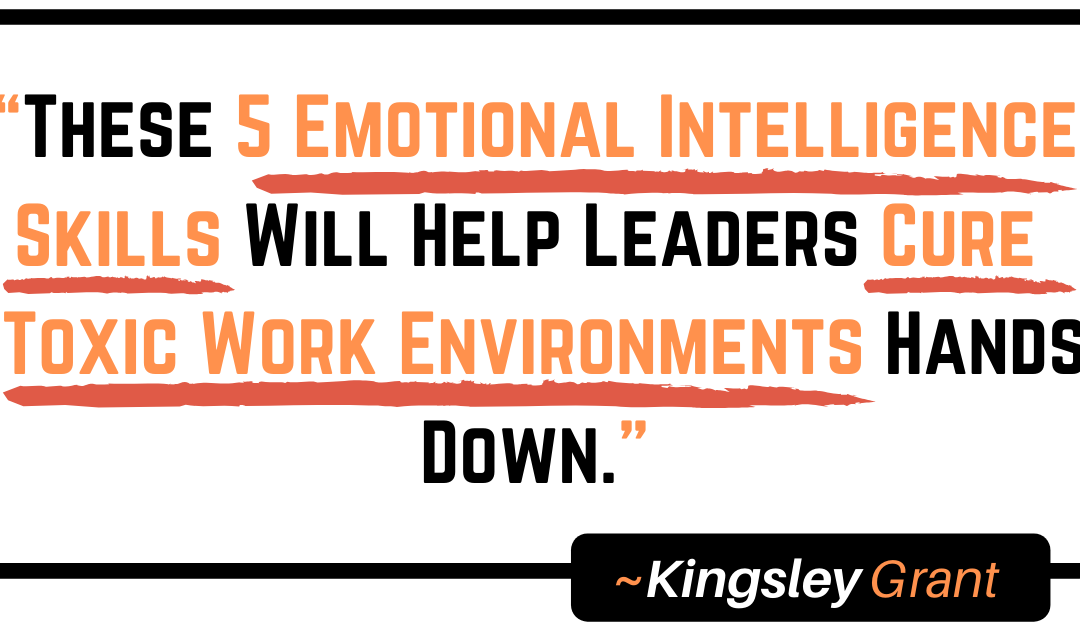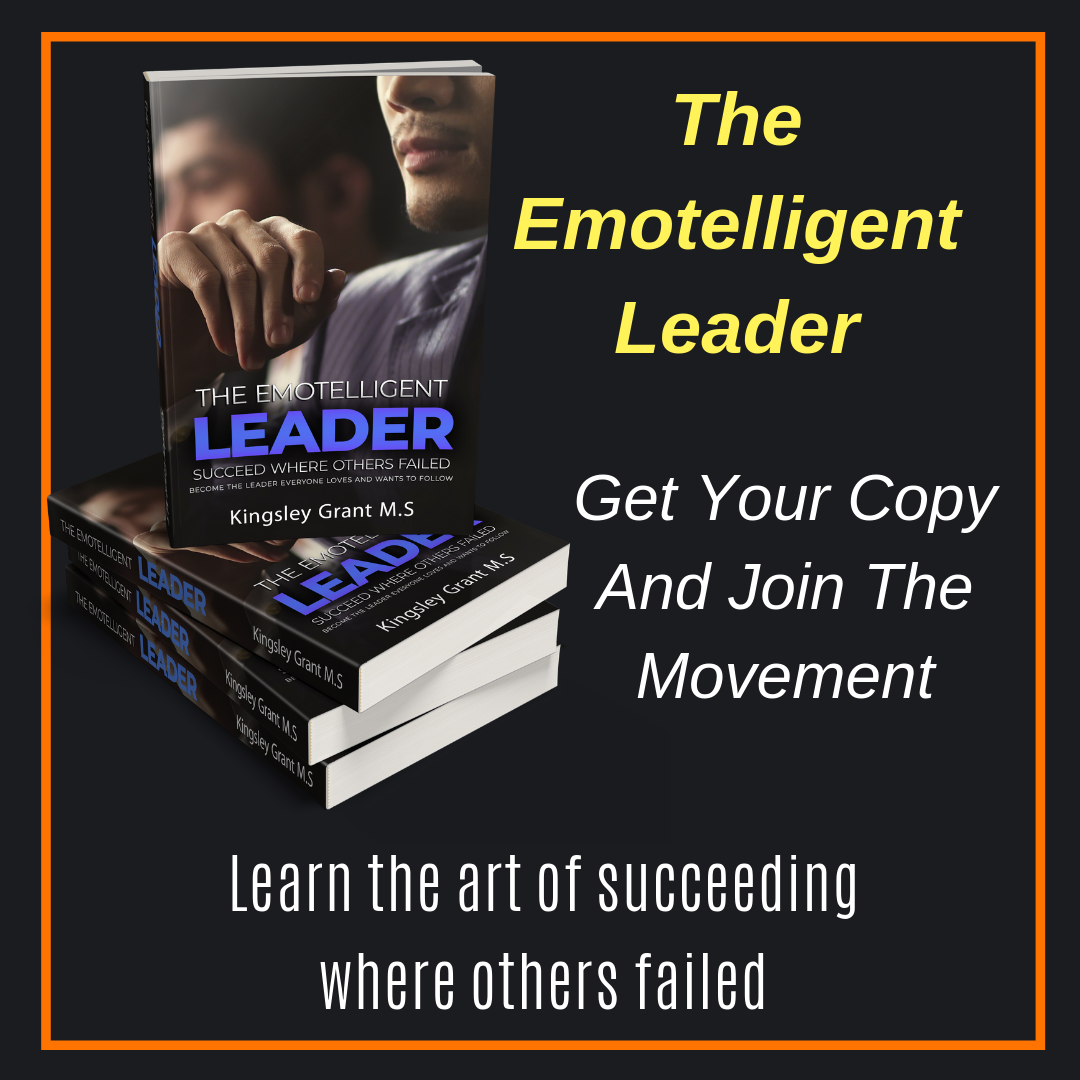These 5 Emotional Intelligence Skills will help leaders turn around a toxic work environment.
Up until December 2018, I have never gotten a flu shot. I simply wasn’t a fan of it.
One of the main reasons was that I heard that you end up getting the flu once you get the shot. It was the body’s way of building up its immunity.
Have you heard that?
That message became embedded in my mind and I couldn’t get past it. And here’s the thing: I didn’t research to see whether or not it was true. I believed the source simply because it seemed to make sense to me.
And why not?
It is dead viruses of the flu that is injected into your body.
Eventually, due to a work-related situation, I had no choice but to get it. It was a requirement.
I got the shot and waited. And waited. And waited to get the flu. But no flu.
I had also learned that it wasn’t true that you’d get the flu.
Having received the flu vaccine, I have since spoken to people who have been very sick with the flu … really sick. To some, I encouraged them to get the shot next time. Imagine!
It was too late now to suggest it. All they wanted to do was to be cured of the flu. They felt awful and didn’t want to be around anyone. And rightly so. As a matter of fact, I didn’t want to be around them either. I wanted them to be cured, but I didn’t want to get sick.
This is what it’s like for some people in the workplace. They don’t want to be around others. They feel awful almost every day being in the same space with people whom they consider to be toxic.
And they don’t see any end in sight. They’re wondering if there is a cure for this without becoming contaminated by the toxicity around them.
The question is: Is there a cure for a toxic work environment?
I believe there is.
Here are 5 Emotional Intelligence Skills that will help leaders cure a toxic work environment.
1. Self-Awareness
What is self-awareness? It’s the awareness of your state of mind, preferences (likes, and dislikes), the “tools” or resources you have available to you, and your instincts.
Being self-aware is the key to your ability to interpret what’s happening within you when you are exposed to a toxic environment.
This is where you have to start if you are going to set in motion the cure for a toxic work environment.
Your inability to assess your internal state, including your emotions and their effects, can blind you from realizing that you might be coming off as toxic to others without knowing it.
2. Self-Regulation
What is self-regulation? It is the managing of your internal state – your state of mind, your impulses, and “buying” yourself time to access your tools (resources) that’s available to you.
Being able to self-regulate, helps you keep disruptive emotions and impulses at bay or in-check.
It allows you to first look “in the mirror” to see how and where you might be negatively impacting your surroundings. You are more apt to take responsibility rather than look for whom to blame.
You will be more likely able to adapt to circumstances that are outside of your control rather than wanting to have things go your way.
This is what irks and discourages others when they know you are unwilling to yield to others and not always have your way.
So, be flexible and adaptable.
3. Motivation
What is motivation? It is your ability to take the initiative to do what’s necessary to get to a predetermined outcome.
When others know this about you, they are more likely to rally to a cause as you lead the way.
Your drive, commitment, and optimism become contagious. They will trust and believe in you.
This focused determination leaves little or no room for a toxic workplace to remain alive.
4. Empathy
What is empathy? One of the simplest ways to describe this is to put yourself in another person’s “shoes.” It is simply being aware of others’ feelings, concerns, and needs.
You show others that you are someone who is being empathetic by seeking to understand more than being understood.
Another way is to look for ways to develop their skills and abilities.
In the words of Theodore Roosevelt, “People don’t care how much you know until they know how much you care.”
Show them that you care. Be empathetic.
5. Social Skills
What are social skills? It is your ability to manage the emotions of others with the overall goal of bringing about the most desirable responses in them. It is relationship management at its core.
When a leader is able to practice effective listening skills, communicate effectively, manage conflict skillfully, build a strong rapport with his or her team, is open to change, and is big on collaboration, he or she is considered high in social skills.
These skills are a must-have for leaders who are focused on curing a toxic work environment.
They do not happen by default. It takes work and lots of it to master these skills. But the payoff is more than worth it.
Your team will thank you when you take the time to cultivate them.
These 5 cures are discussed more at length on The Kingsley Grant Show podcast.
If you would like to schedule Kingsley Grant for your next event as a keynote speaker, trainer, or coach, you can do so by connecting with him here.
I would love to hear from you on this topic so I can learn as well. I learn more when I’m engaged in healthy dialogue whether in agreement or disagreement.
If you resonate with this topic, you would be interested in The Kingsley Grant Show as well as my talks on leadership.
Remember, YOU ARE 1-SKILL AWAY from your best hope and if this is something you want to know more about, do not hesitate to connect with me at www.kingsleygrant.com/connect.
Book me to be your speaker at your next event –> www.kingsleygrant.com/speaking






